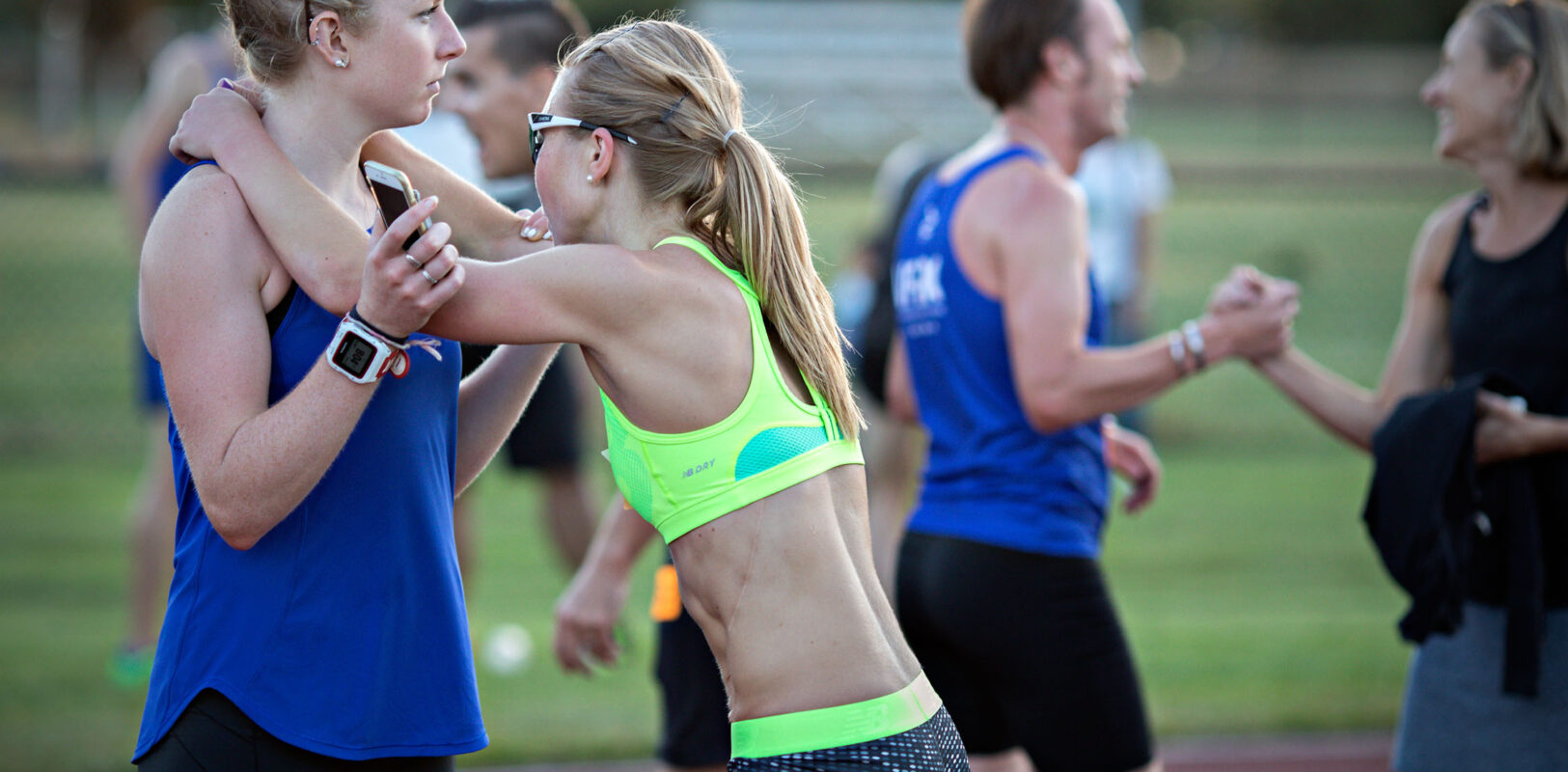
Know When to Turn Off. Know When To Ramp Up.
“What’s the most difficult part of coaching?”
This question from my massage therapist (that interrupted my daydreaming) is still lingering as I stare at the shifty ceiling fan above me. Ceiling fans never quit. They will go on and on and on until someone makes them stop. Or they break on their own. They have different speeds of intensity, and if left stagnant, they collect dust. The answer to his question is so clear to me — it’s holding people back from this same relentless spinning around and around and around. Yep, this is an oversimplified analogous take on running but I do believe there’s so much we can learn from the world around us if we pay attention.
There are many overworked concepts tossed around in running circles. “Recovery” is high on this list. By definition, recovery is the process of regaining health. Intellectually we understand its importance and why it exists, and yet, athletes can take this simple principle for granted.
Culturally, we see social media or watercooler conversations celebrate suffering and long hard efforts. This happens in both the workplace and in training. Sure, we should all want to work hard to get where we’re going, but heck, we can’t do much when we’re going full tilt exhausted, under fuelled, sleep-deprived, and crossing that blurry line into burnout. Muhammad Ali is a great teacher in this regard: “It isn’t the mountains ahead to climb that wear you out; it’s the pebble in your shoe.”
Like Ali, there are far too many great thinkers out there to write another list of the strategies to recover well. The experts can do that. If you want to start somewhere in understanding what we need as humans when it comes to slowing down or dialing it up, go read Brad Stulberg’s Twitter feed (he says it like it is).
What I can add to this discussion is my own personal experience. Amusingly, as I looked at when to carve away time to write my thoughts for this post, I was up against recovering from a long solo 38k run around Manhattan. Nothing like being in the work to empathize with those you’re writing for. Recovery for me looks like getting high-calorie food and fluids in my body immediately after this type of effort. Sometimes I’ll use a foam roller, sometimes I won’t. Sometimes I’ll plug in the heating pad for my legs, sometimes I won’t. I try to spend as much time as possible off my feet and do something that’s unrelated to running. Lastly, and most importantly, recovery is sleep. I don’t bargain with sleep and I don’t stress about it. (I know there are parents reading this and your sleep patterns will surely look different). With the influx of apps and companies out there selling sleep these days, this essential human behaviour can become overwhelming and stressful. That is counterproductive. For a solid take on sleep, listen to Matthew Walker, a Professor of Neuroscience and Psychology at the University of California, Berkeley, and Director of the Center for Human Sleep Science.
To add a few other practical ideas, when I started working with Dylan he was the first recognize that I couldn’t turn around from a hard Sunday long run and do a workout on a Tuesday. That’s not the athlete I am (I need more time) and through some trial and error, my hard efforts are very rarely stacked closely together. This is a solid reminder to keep communication open with your coach around how you’re feeling and to note when workouts just don’t seem to feel right. The seven-day training cycle is arbitrary and definitely not a one size fits all strategy.
As a lifelong dabbler in a broad range of sports, my athletic experience is deep enough to know that everything worth doing takes time. And in some cases, this has meant taking months away from running after a big marathon to fully recharge (physically and mentally) and focus on other things. All of my athletes take time off formal training after their marathons to prolong their passion and development in the sport.
So, back to that looming question from the RMT, yes, one of my greatest challenges as a coach continues to be helping athletes recognize when to turn off or ramp up. Just like that darn ceiling fan, every speed serves a purpose. On the flip side of this, some of the most meaningful moments as a coach have come when an athlete displayed the self-awareness to take a step back to recharge so they could show up for their family, work and future training in all of the right ways. Those are the big wins.
Recovery isn’t just about running, life is busy and full, having the ability to share what’s going on in your life with your coach is essential to creating an effective individualized training plan. The same goes for sharing your running goals with your colleagues so that they can understand you a bit more. Empathy, perspective, and communication are everything here.
Let’s keep pushing the dialogue that rest is not counter to work, it’s part of it.
Yours in running,
Coach Kate
 Kate Gustafson
Kate Gustafson